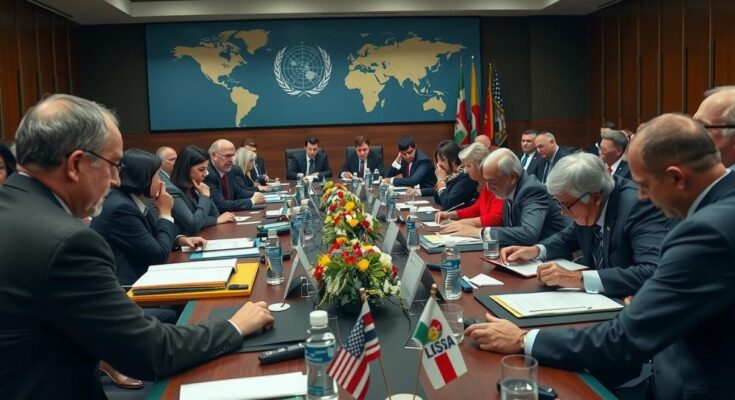At the U.N. climate talks in Azerbaijan, wealthy nations pledged $300 billion annually by 2035 to support developing countries in addressing climate change and transitioning to clean energy. This commitment is significantly less than the estimated $1 trillion required, leading to dissatisfaction among developing nations. Discussions focused on the need for more substantial financial assistance.
During the recent U.N. climate negotiations held in Azerbaijan, a critical agreement was formed as wealthy nations committed to providing $300 billion annually by 2035 to assist developing nations in addressing the adverse effects of climate change and enabling their shift to renewable energy sources. Despite this significant pledge, many experts argue that the actual financial requirement is approximately $1 trillion per year. Discussions ensued between notable figures including William Brangham and Manish Bapna, highlighting the dissatisfaction expressed by developing nations regarding the insufficient commitment.
The issue of climate change presents an increasing challenge, particularly for developing countries that are disproportionately affected by its impacts. Despite being the ones least responsible for greenhouse gas emissions, these nations require substantial financial resources to adapt to changing climates and transition to sustainable energy systems. The recent U.N. climate conference aimed to address these financial needs, but outcomes fell short of expectations, raising concerns over the adequacy of support from wealthier nations.
In summary, the climate deal reached during the U.N. conference signals a step towards assisting developing nations in combating climate change. However, the $300 billion annual commitment falls significantly short of the estimated $1 trillion needed. As discussions continue, the dissatisfaction expressed by developing countries underlines the ongoing challenges in securing adequate climate financing to ensure global environmental sustainability.
Original Source: watch.montanapbs.org




